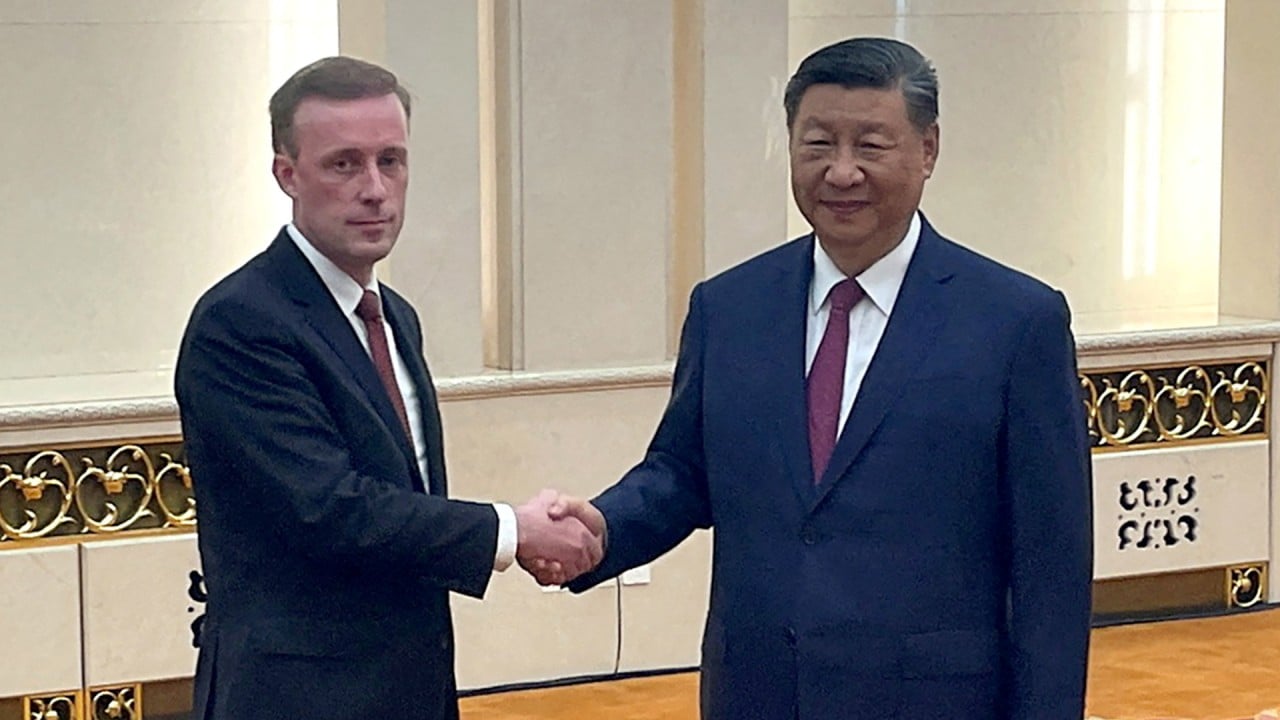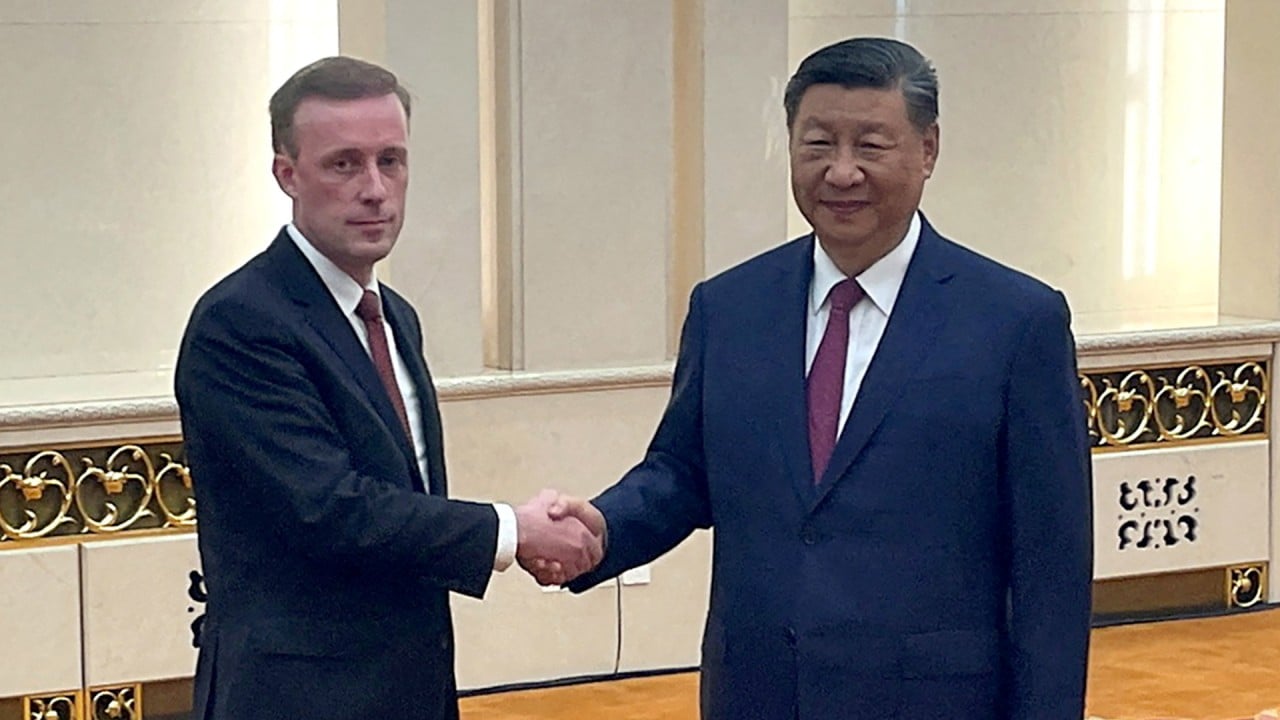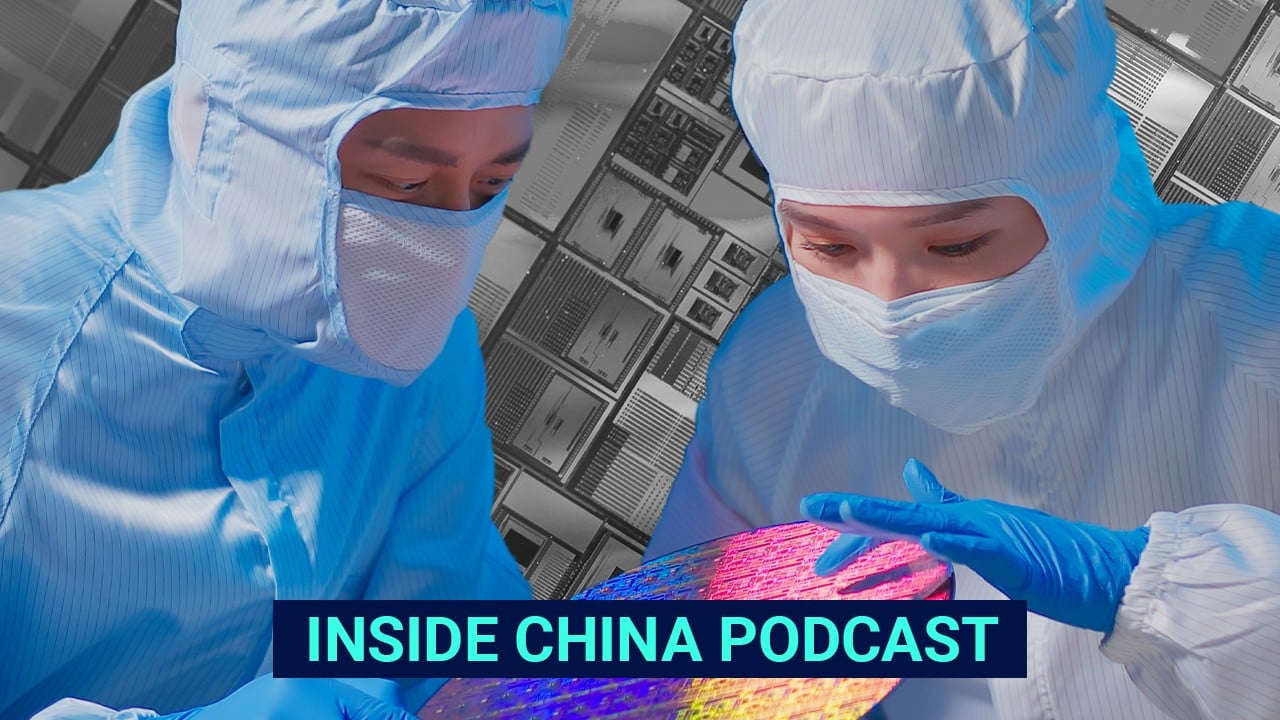Washington’s new China-focused programme to address economic security concerns underscores its focus on the innovation and hi-tech race with Beijing ahead of US presidential elections, according to a Chinese observer.
“Red Ventures”, a pilot programme focused on mapping gaps in technological innovation with China, has entered its second phase, months after being launched by the National Security Agency, according to US news website Defense One.
The programme aims to form an “innovation pipeline” to fix US vulnerabilities to China and to “provide a single list … of challenge problems for our China mission, for a whole bunch of different innovation communities,” the NSA’s assistant deputy director for China, Dave Frederick, was quoted as saying in the report.
“We’ve run a pilot … focused on the economic security topic because we knew that was going to be a shift for us,” he said.
The report comes close on the heels of US National Security Adviser Jake Sullivan’s first visit to China last week, with economic security and technology competition high on his agenda along with a string of trade and geopolitical hotspot issues.
After meeting Chinese President Xi Jinping on Thursday, Sullivan said he had raised concerns about China’s focus on economic security and its impact on foreign businesses and supply chains.
“We had a vigorous give and take on the issue, obviously didn’t come to agreement,” Sullivan told reporters in Beijing as he wrapped up his three-day trip.
According to Lu Xiang, an expert on US-China relations at the Chinese Academy of Social Sciences, while Sullivan had sought to reassure Beijing that the US did not want to contain China’s rise or decouple their economies, the launch of programmes such as Red Ventures sent out a different message.
“While it is probably a pilot at a preliminary stage based on the report, the programme is in line with what the US has been doing since the Donald Trump administration, that is, to intensify its battle against China’s industrial upgrades and technological advances,” Lu said.
Building on the Trump-era restrictions on China’s tech development, President Joe Biden has adopted a “small yard, high fence” approach of toughened curbs on technology and equipment transfers to China, citing national security concerns.
Beijing has responded to the expanding restrictions with an increasing focus on economic and technological self-reliance and state-led innovation.
“This is not going to change” regardless of the results of the US presidential elections in November, Lu said.
He said the reported update on Red Ventures was also probably aimed at sending a message to the next US administration, especially if the Democratic Party nominee, Vice-President Kamala Harris, were to win the race she joined after Biden dropped out.
“They certainly hoped that all the current work would be carried over to the next administration,” Lu said.
Frederick admitted things had not proceeded as quickly as they had hoped with Red Ventures, according to Defense One.
“We’ve [got] through phase one of that. So we’ve curated a set of problems. We’re now moving into phase two, where we’re going to work with all the different solution organisations,” he said. “We’re still piloting it, so we’re running slower, but definitely think it’s going to be very useful tradecraft for us to use in terms of prioritising.”
Frederick said last September that the NSA, an intelligence arm of the US Department of Defence, was facing a “big shift” from counterterrorism to focusing on competition with China.
He was the first to take up the China-focused NSA role created in November 2022, the DefenseScoop website reported earlier this year.
A study by the Australian Strategic Policy Institute last year showed China leading in 37 of 44 technologies tracked, including electric batteries, hypersonics and advanced radio-frequency communications such as 5G and 6G.
Last week, the think tank published its 2024 report, which was partially funded by the US State Department.
The report says China was the leading country in 57 out of 64 critical technologies in 2019-2023, covering areas from defence, space and artificial intelligence to energy, the environment, and cyber and biotechnology.
Former US assistant defence secretary for space policy John Plumb said last week that the US was “falling behind” China on GPS development, according to a separate Defense One report.
Plumb – who stepped down in May – said while the Pentagon relied on about two dozen satellites to guide its planes, ships, and weapons, China was developing a comprehensive and modernised position-navigation-timing architecture that integrated space and ground layers.
But Lu said the reported tech gaps had been “greatly exaggerated”.
“While China may have done well on the integrated application of certain technologies, it still lags far behind the US when it comes to innovation, research and development, especially with the tightening restrictions on advanced technologies, such as chips,” he said.




